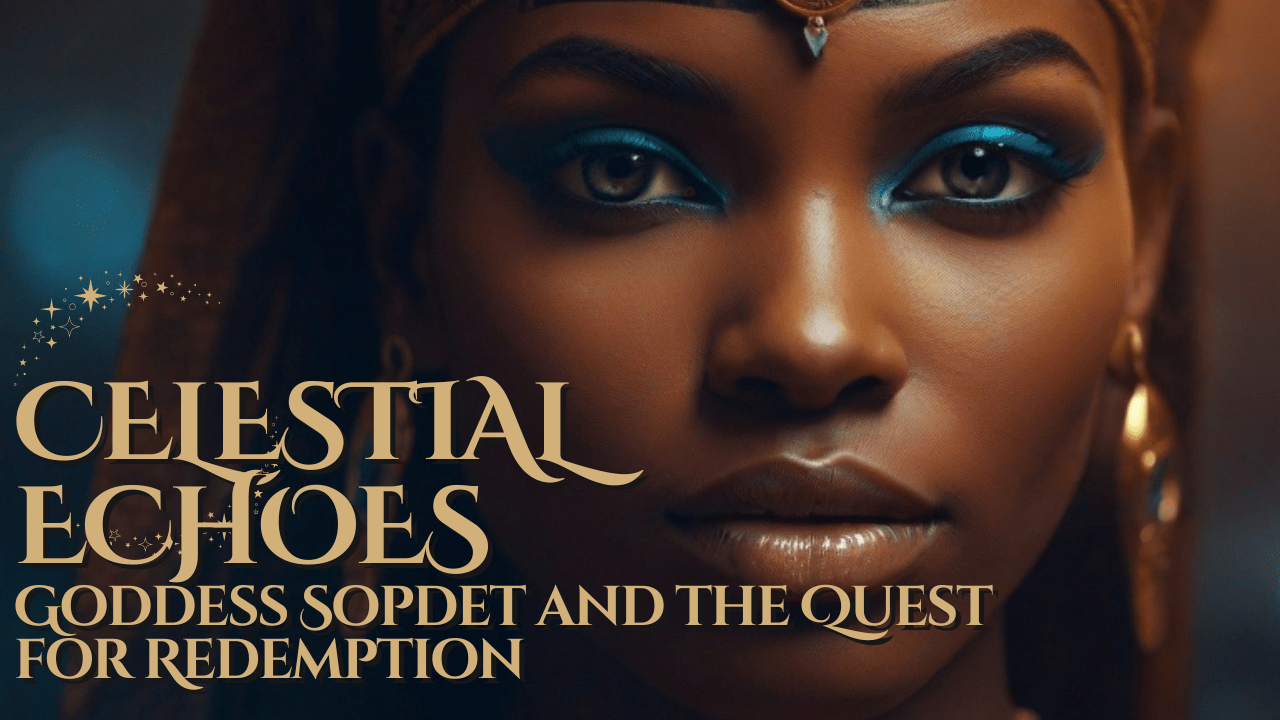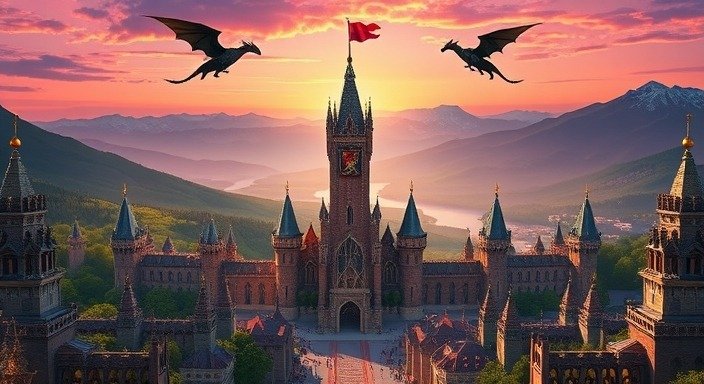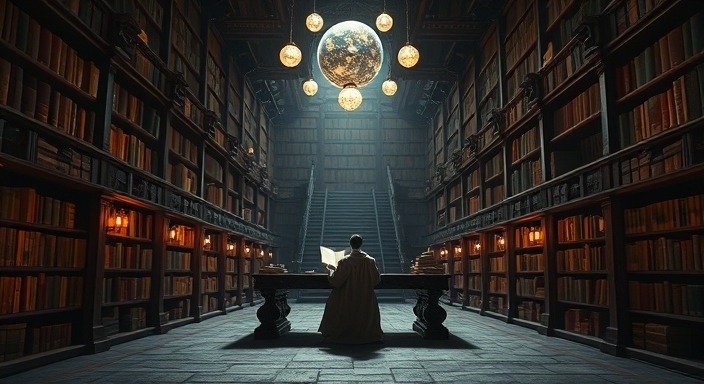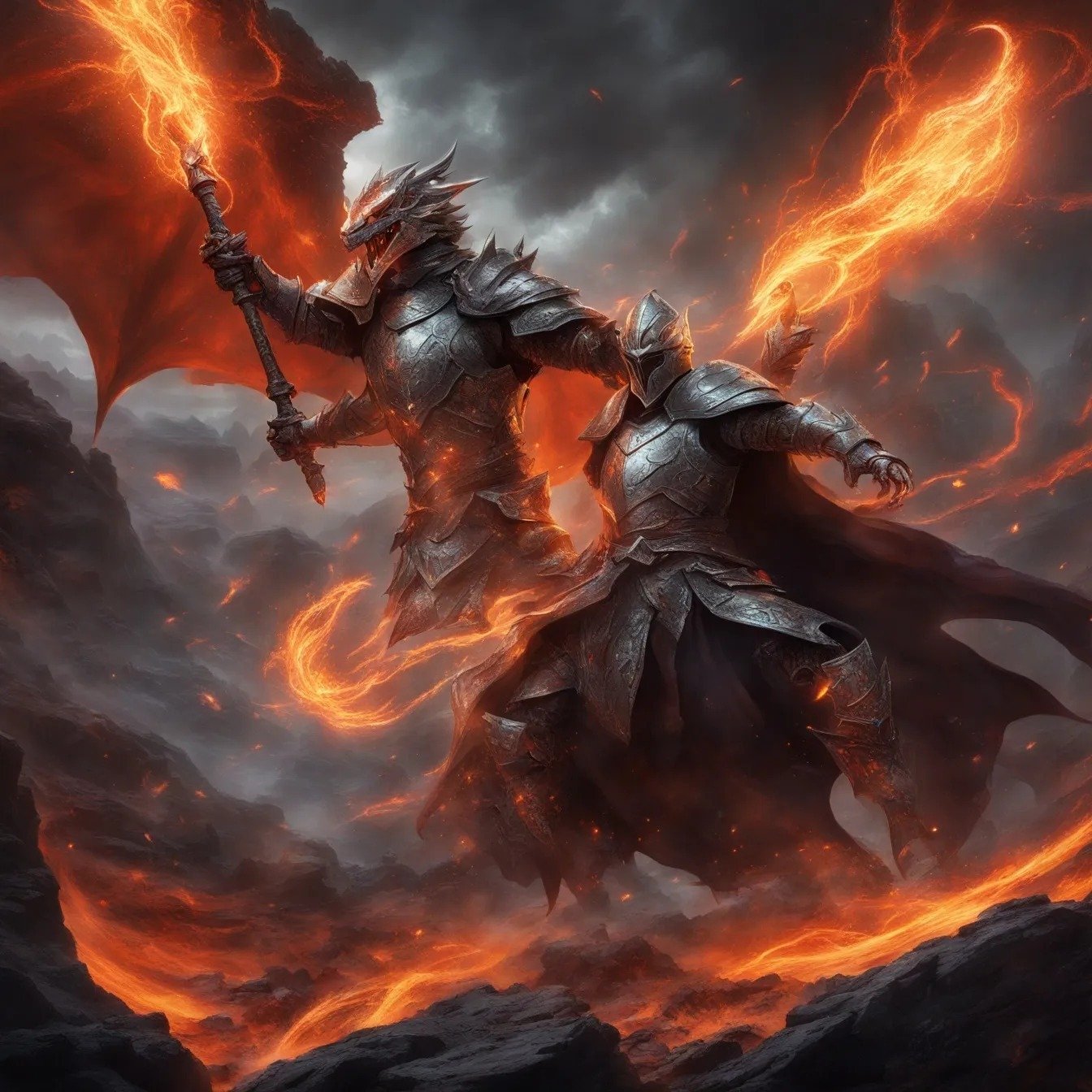Why Fiction?
Fiction has always been an escape, a way to enter realms where the impossible becomes possible. The written word gives life to new worlds, where the boundaries of reality fade, allowing our minds to explore places we never thought existed.
Whether you’re plunging into an epic battle between good and evil or embarking on a magical quest for an ancient relic, fiction unleashes the imagination, immersing readers in fantastical landscapes, mystical creatures, and stories of unparalleled adventure.
In this article, we’ll dive into the allure of fiction—specifically the genre of fantasy—and explore why these imaginative worlds captivate readers across generations. From epic fantasy sagas to magical quests, we’ll take a closer look at the magic of storytelling and the journey fiction offers. So, grab your sword, mount your dragon, and get ready to embark on an adventure where your imagination is the only limit.
The Power of Fiction: Escape and Exploration
At the heart of every fiction story lies a simple but profound truth: humans are wired to tell and enjoy stories. From the earliest oral traditions to today’s sprawling fantasy series, storytelling has been an essential part of human culture. In fiction, especially the fantasy genre, we find a unique combination of escape and exploration that allows us to transcend the mundane and experience worlds vastly different from our own.
Fantasy fiction, in particular, taps into our deepest desires to explore the unknown. Whether it’s traversing the vast landscapes of Middle-earth in J.R.R. Tolkien’s The Lord of the Rings or navigating the magical lands of Westeros in George R.R. Martin’s A Song of Ice and Fire, these stories offer more than just entertainment.
They provide a space where readers can confront real-world issues—such as morality, power, and identity—through the lens of make-believe. These fantasy worlds often mirror our own but add layers of magic and myth, which create a safe space for readers to grapple with complex emotions and ideas.

Source Links
The Importance of Storytelling in Human Culture (https://www.bbc.com/culture/article/20170522-why-we-need-stories)
– [Fantasy as a Reflection of Real-World Issues](https://www.tor.com/2020/05/13/how-fantasy-books-help-us-face-our-own-reality/)
Epic Fantasy: Where Magic and Adventure Collide
When it comes to fantasy fiction, the epic fantasy genre stands out as a favorite among readers. Defined by grand-scale storytelling, intricate world-building, and complex character arcs, epic fantasy transports readers into worlds filled with magic, mythical creatures, and legendary heroes.
These stories often span multiple books and follow characters through quests that determine the fate of entire kingdoms, realms, or even worlds.
A hallmark of epic fantasy is the hero’s journey, a narrative structure popularized by mythologist Joseph Campbell. The hero’s journey takes the protagonist on a transformative adventure, where they leave their ordinary world behind, face trials and tribulations, and ultimately return as a changed person.
Classic examples include Frodo Baggins’ journey to destroy the One Ring in The Lord of the Rings or Harry Potter’s evolution from a boy wizard to the savior of the wizarding world in J.K. Rowling’s Harry Potter series.
What makes epic fantasy so compelling is its blend of magic and adventure. In these stories, magic is not just a tool; it’s often a driving force that shapes the world and the characters’ destinies. Think of Gandalf wielding his staff to defeat the Balrog or Daenerys Targaryen commanding her dragons in battle.
Magic in epic fantasy isn’t just background—it’s integral to the plot, adding layers of wonder, danger, and awe.

Source Links
[Joseph Campbell’s Hero’s Journey](https://www.theringer.com/2019/11/8/20949900/the-heros-journey-joseph-campbell-star-wars)
– [Why Magic Matters in Fantasy Fiction](https://www.tor.com/2021/05/14/the-importance-of-magic-in-fantasy-worldbuilding/)
Magical Quests: The Heart of Adventure
Magical quests are another key element of fantasy fiction that taps into readers’ love for adventure. These quests are often driven by a central mission—a powerful artifact must be retrieved, an evil sorcerer must be defeated, or a lost kingdom must be restored. These quests, while fantastical, are also deeply personal, pushing the protagonists to confront their fears, test their strengths, and discover their true potential.
One of the most iconic magical quests is the search for the Holy Grail, which has been reimagined in countless fantasy tales. In modern fiction, magical quests take many forms. Consider Percy Jackson, the modern-day demigod who must embark on a journey to recover Zeus’s lightning bolt in Rick Riordan’s Percy Jackson and the Olympians series.
Or the quest for the Deathly Hallows in Harry Potter, where Harry, Hermione, and Ron must find three powerful magical objects to defeat Lord Voldemort.
These magical quests serve as metaphors for growth and self-discovery. Characters are forced to confront their weaknesses, challenge the status quo, and make difficult choices that shape not only their fate but the fate of the world around them.
Readers love these stories because they represent the ultimate form of escapism—where an ordinary person is thrust into an extraordinary situation and emerges stronger and wiser for it.
Source Links
[The Heroic Quest in Fantasy Literature](https://www.nytimes.com/2016/03/27/books/review/the-heroic-quest-in-fantasy-literature.html)
– [How Percy Jackson Revolutionized Modern Fantasy](https://www.tor.com/2020/09/24/how-percy-jackson-redefined-fantasy-for-a-new-generation/)
Fantastical Worlds: Crafting the Unimaginable
One of the greatest joys of reading fantasy fiction is the chance to explore fantastical worlds—vast landscapes that are unlike anything found in the real world. These worlds are crafted with care, with every detail—whether it’s a mystical forest, a floating city, or an enchanted castle—designed to draw readers deeper into the story.
World-building is one of the most important aspects of fantasy fiction. Authors like J.R.R. Tolkien, George R.R. Martin, and Brandon Sanderson have become masters of this art, creating immersive worlds that feel alive with history, culture, and complexity.
In The Lord of the Rings, Middle-earth is so meticulously developed that it feels like a real place, complete with detailed maps, languages, and mythologies. Similarly, Martin’s A Song of Ice and Fire transports readers to the political intrigue of Westeros, where noble families vie for power in a sprawling epic filled with betrayal, magic, and dragons.
What makes these worlds so immersive is not just their scale but their complexity. Good world-building doesn’t just create a beautiful backdrop for the story—it also influences the plot, characters, and conflicts. In Mistborn, for example, Brandon Sanderson’s magic system—where people consume metals to fuel their powers—is intricately tied to the history, politics, and economy of the world.
Readers are drawn to these fantastical worlds because they offer a sense of wonder and possibility. They allow us to step into lands where the rules of our world no longer apply, where magic reigns, and where anything is possible.

Source Links
[The Art of World-Building in Fantasy Fiction](https://www.britannica.com/topic/fantasy-literature/The-origins-of-modern-fantasy)
– [Brandon Sanderson’s Approach to World-Building](https://www.tor.com/2019/12/02/brandon-sandersons-mistborn-the-best-fantasy-world-in-modern-literature/)
Mythical Creatures: Guardians of the Fantasy Realm
No journey into the fantastical world of fiction would be complete without encountering **mythical creatures**. From the fire-breathing dragons of Westeros to the shape-shifting Fae in ‘Sarah J. Maas’ A Court of Thorns and Roses, these creatures add an element of mystery, danger, and enchantment to fantasy stories.
Dragons, in particular, have become synonymous with fantasy fiction. In many stories, they are the ultimate embodiment of power, wisdom, and terror.
They can serve as wise, ancient beings—like Saphira in Eragon—or as destructive forces of nature, as seen in Smaug from The Hobbit. In either case, dragons capture our imagination because they represent something primal—a force beyond human control.
But dragons are far from the only mythical creatures that populate fantasy worlds. Unicorns, gryphons, golems, and merfolk all play significant roles in different fantasy settings. In Narni, the talking animals and mystical creatures that inhabit the world alongside the Pevensie children create a sense of wonder and childlike magic.
Meanwhile, in The Witcher series, Andrzej Sapkowski introduces a variety of fantastical beasts, from the terrifying leshen to the majestic golden dragons.
These mythical creatures not only enhance the magical atmosphere of fantasy worlds but often serve as metaphors for larger themes. For example, in A Song of Ice and Fire, dragons represent power and domination, while in The Chronicles of Narnia, they symbolize innocence and the balance between good and evil.
Source Links
[Dragons in Fantasy Literature](https://www.tor.com/2019/05/29/dragons-the-fantasy-genre-why-we-cant-get-enough/)
– [Mythical Creatures of Fantasy](https://www.wired.com/2019/10/mythical-creatures-in-modern-fantasy/)
Good vs. Evil: The Timeless Battle
Perhaps the most defining aspect of fantasy fiction is the epic battle between good and evil. Whether it’s Frodo versus Sauron, Harry versus Voldemort, or Geralt of Rivia versus his monstrous foes, fantasy literature often centers on this age-old conflict.
What makes the good vs. evil dynamic so compelling in fantasy fiction is that it often isn’t black and white. While there are clear heroes and villains, the best fantasy stories explore the grey areas in between.
In Game of Thrones, for example, few characters are purely good or evil. Instead, Martin’s series is filled with morally complex figures like Jaime Lannister and Tyrion, who struggle with their own sense of right and wrong.
This moral complexity makes the good vs. evil conflict more relatable. In our own lives, we are constantly faced with choices that test our morality, loyalty, and courage. By exploring these themes through fantasy fiction, readers are given a safe space to question and reflect on their own values and beliefs.

Source Links
[The Battle Between Good and Evil in Fantasy Fiction](https://www.theguardian.com/books/2017/nov/30/good-vs-evil-in-modern-fantasy-books)
– [The Grey Morality of Game of Thrones](https://www.nytimes.com/2019/05/20/arts/television/game-of-thrones-good-vs-evil.html)
Conclusion: The Power of Imagination in Fiction
The magic of fiction lies in its ability to transport us to places far beyond our everyday reality. Through fantastical worlds, mythical creatures, and epic battles, fiction allows us to explore the depths of our imagination while also confronting real-world issues and emotions.
From magical quests to morally complex characters, the fantasy genre in particular provides readers with endless opportunities for adventure, growth, and reflection.
So, the next time you open the pages of a fantasy book, let your imagination run wild. Because in the world of fiction, anything is possible.